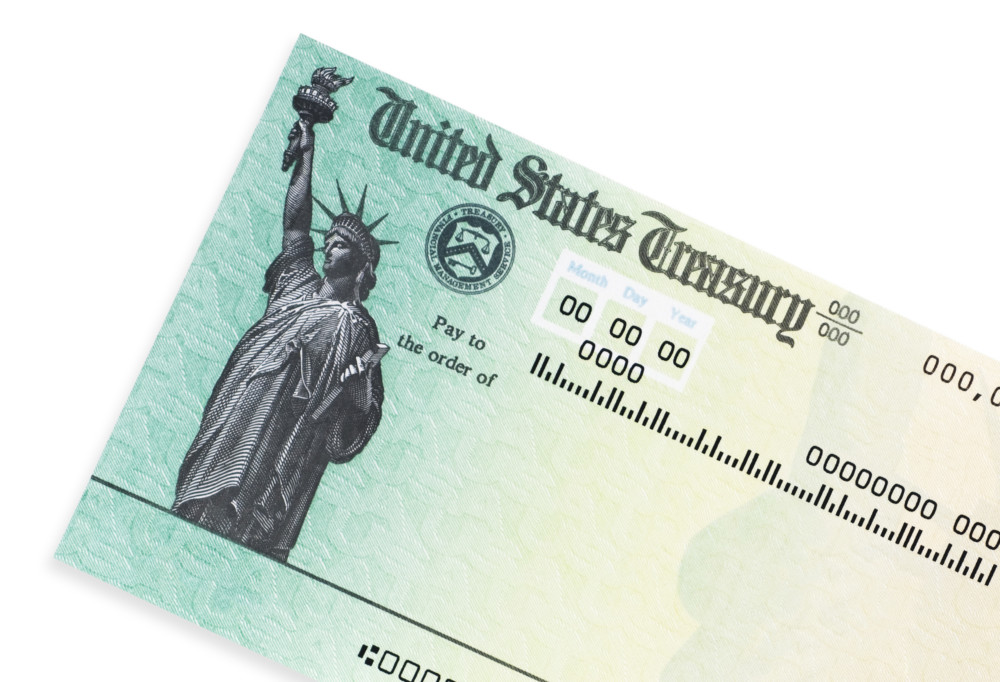By David Lightman
McClatchy Washington Bureau
WWR Article Summary (tl;dr) As David Lightman reports, “Most taxpayers will get the payments of up to $1,200 per adult and $500 per dependent child. But not everyone, and there are no solid estimates of how many people will get the cash.”
WASHINGTON
The stimulus checks coming to taxpayers, probably starting later this week, are expected to help people for a little while.
And while most people will get payments, questions linger whether many others will receive them. How do divorced parents qualify? Newborns? College students?
And for all the people who get the money, “what happens after that month or two? If we are looking at a lockdown that extends into May, June, or even longer, those one-time stimulus checks will be stretched pretty thin,” says Jacob Vigdor, professor of public policy and governance at the University of Washington’s Evans School.
Most taxpayers will get the payments of up to $1,200 per adult and $500 per dependent child. But not everyone, and there are no solid estimates of how many people will get the cash.
If the IRS has your direct deposit information, you don’t need to do anything. If your 2018 tax return showed an income of $75,000 or less if you filed as an individual or $150,000 or less if you filed jointly, you should see $1,200 per adult and $500 per child in your account shortly.
Those payments are reduced until those who earned more than $99,000 if filing individually or $198,000 jointly no longer qualify. If you’ve filed a 2019 return, that data will be used.
But many may not qualify or need help figuring out if they do. With the help of the nonpartisan Tax Foundation and the National Taxpayers’ Union Foundation, local congressional offices and the Internal Revenue Service, here are some questions people are raising:
Q. My 2019 income was too high to qualify for the stimulus check. But now I’m out of a job. Will I get any cash?
A. Yes, says Garrett Watson, senior policy analyst at the Tax Foundation, you can get a rebate on your 2020 taxes if you earn a lower income in 2020 and didn’t get a rebate based on 2019 returns. So you would get the credit when you file if your 2020 income is low enough.
Q. Do I get the $500 per child payment if I’m divorced?
A. “Only the parental taxpayer claiming the child as a dependent will receive the $500,” the Tax Foundation advises.
Q. Do I need to pay federal income tax on the stimulus payment?
A. No. You do not have to pay any tax on the money, according to a House Ways and Means Committee Republican “Coronavirus bulletin.”
Q. My daughter goes to college. Will I get the $500 per child payment for her?
A. Not as a dependent, unless she’s 16 or under. Only children 16 or under living at home qualify, and they have to meet certain conditions. Among them: They have to have lived with the adult for at least six months of the qualifying year.
Q. We had a baby last month. Can she qualify for the $500 credit?
A. Yes, but not until you file your 2020 return next year. You’ll claim the $500 as a credit. Any change in status is likely to be remedied on the tax form you file next year, Kaeding said.
Q. I get Social Security and don’t normally file a tax return. What do I do?
A. From the IRS: It will use information Form SSA-1099 or Form RRB-1099 to generate the cash payments to people who get those forms.
“This includes senior citizens, Social Security recipients and railroad retirees who are not otherwise required to file a tax return,” the IRS says.
Q. Can immigrants with green cards or people here on H-1B and H-2A visas receive payments?
A. If you don’t have a Social Security number, no.
Q. What if I make too much this year to qualify for the payment, but made enough last year so that I do get the rebate, do I need to return it?
A. No. “There is no penalty for receiving a rebate based on a lower income on 2019 or 2018 tax returns,” the Tax Foundation says. “If the filer is given too much, the IRS will not penalize them.”
Q. I have no taxable income. What do I do?
A. You will be able to file “a simple form provided by the IRS specifically for the purpose of receiving the rebate check. The IRS will soon provide additional information instructing people on how to file the simple form that includes information such as their name, address, Social Security number, number of dependents, and direct deposit bank account information” on its website, according to a fact sheet from the House Ways and Means Committee Republicans.
___
Distributed by Tribune Content Agency, LLC.














































































































































































































































































































































































